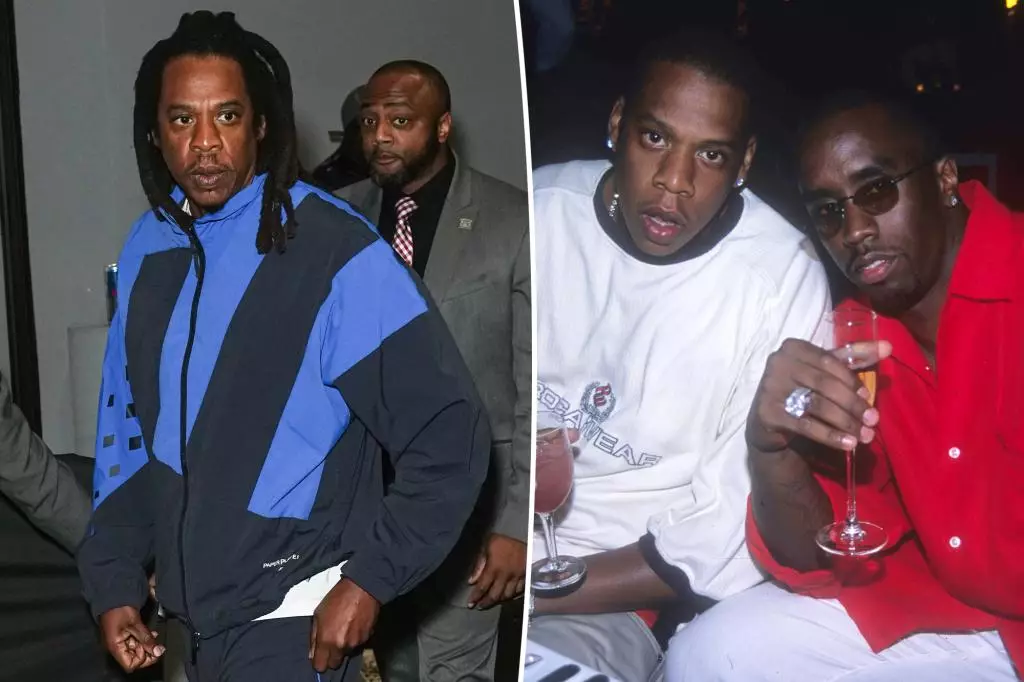In a shocking turn of events, the legal battle surrounding Jay-Z and Sean “Diddy” Combs has taken a significant leap forward following recent court rulings. A New York judge has granted the anonymity of the plaintiff, a woman who alleges that both men were involved in her rape when she was a minor. This case comes amid deeper discussions about celebrity accountability, the impact of trauma on survivors, and the appropriate handling of sensitive allegations in the public eye.
Judge Analisa Torres’ decision to allow the plaintiff to remain anonymous underscores a growing recognition of the vulnerability that many survivors of sexual assault experience. The judge highlighted the psychological repercussions faced by the alleged victim, who continues to grapple with severe depression, post-traumatic stress, and other health complications linked to her traumatic past. The court’s prioritization of the plaintiff’s mental health illustrates an important precedent: protecting individuals who bravely come forward against powerful figures, especially when the outcome could exacerbate their trauma.
The fact that the court deemed the plaintiff particularly susceptible to the harms associated with public exposure shows an understanding that anonymity can significantly influence a survivor’s willingness to engage with the justice system. There’s a crucial need for legal environments that encourage victims to seek resolution without the fear of judgment or retaliation.
The Allegations: A Detailed Account of Assault at the MTV Afterparty
The allegations lodged by the plaintiff are harrowing. She claims that during a 2000 MTV Video Music Awards afterparty, she was provided with a drink that incapacitated her, making her feel “woozy” and “lightheaded.” Alone and vulnerable, she alleges that Jay-Z proceeded to remove her clothes and assault her while Diddy and another unidentified female watched. This narrative, if proven true, paints a disturbing picture of predatory behavior from two iconic figures in the hip-hop community.
The venue—the MTV afterparty—represents a world where fame and power intersect. The chilling conjecture surrounding the incident raises broader questions regarding the protection of minors in environments rife with risk and excess. These are powerful men at the pinnacle of their careers, and the alleged assault brings to light the complexities of consent, power dynamics, and the responsibilities of celebrities.
Criticism directed at Jay-Z’s legal team suggests a misalignment between their legal strategies and the expectations of the judicial process. Judge Torres condemned their tactics, labeling them as inflammatory and unnecessary. She also expressed disapproval of efforts to dismiss the plaintiff’s claims through aggressive litigation tactics. The judge’s queries about the appropriateness of a combative approach highlight the ethical obligations of legal representation.
In addition, the media’s reaction to the lawsuit points to a broader cultural conversation about the implications of high-profile accusations. Jay-Z’s vehement denial of the claims, which he referred to as “heinous,” alongside his team’s insistence on public naming of the accuser, reveals how celebrity culture often fuels sensationalism. This situation illustrates the delicate balance that must be maintained between defending against accusations and garnering public sympathy.
Broader Implications: Justice for Survivors and Accountability for Celebrities
As the legal proceedings evolve, they carry profound implications not just for those directly involved but also for society at large. The dichotomy of celebrity culture can complicate perceptions of justice, with powerful figures often seeming impervious to accountability. The public’s response to such cases plays a vital part in shaping societal attitudes towards survivors.
Simultaneously, the controversy surrounding this lawsuit calls attention to the need for systemic change in addressing sexual violence. The judiciary’s commitment to protecting the identities of vulnerable complainants is crucial to ensure that they feel safe and supported when navigating the legal landscape.
This unfolding situation concerning Jay-Z and Diddy is much more than a celebrity news story; it represents a critical moment in society’s ongoing struggle for justice, respect for the vulnerable, and accountability among the powerful. As the legal battle progresses, it serves as a stark reminder of the complexities surrounding celebrity cases and the necessity for accountability and compassion in the treatment of survivors.

